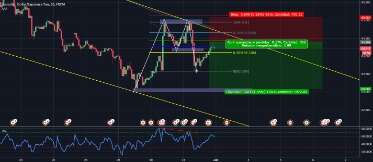A similar scenario may occur, for instance, if the expiry of the lock-up corresponded with earnings season. Because of this, the Securities and Exchange Commission (SEC) recommends investors research a company’s lock-up period before investing. If the company is still in a lock-up period, you might decide to wait until it expires to invest. Not only could you take advantage of a potential price dip, but you would avoid losing money owning a stock that loses value.
- Inflation can have a big impact on the stock market, leaving unprepared investors in for a bumpy ride.
- An initial public offering (IPO) lock-up period is a contract provision preventing insiders who already have shares from selling them for a certain amount of time after the IPO.
- Lock-up periods generally apply to insiders, such as a company’s founders, owners, managers, and employees.
- The price impact of any new public information will be reflected in the company’s stock price almost immediately.
Shares of Shake Shack Inc. triggered a short squeeze from the day before its first lock-up expiration on July 28, 2015, which catapulted the stock price over 30% in less than two weeks. While stocks tend to sell-off ahead of a lock-up expiration, they don’t necessarily continue the selling pressure in all cases. If the pre-expiration sell-off is too dramatic, it can often cause a short squeeze on expiration day as short-sellers look to cover their shares with hopes to lock in profits or cut losses.
Exercise Caution with Crypto Asset Securities
On the other end of the argument are those investors who believe in market timing as a way to select stocks that will outperform the market. For these investors the lock-up period expiration date becomes an ideal tool to time the market and attempt to profit during a period with either long or short selling techniques based on the anticipated price movement. The IPO lock-up period starts after the initial public offering is complete and goes into effect for a period of time while ordinary shares are sold on the stock exchange. The IPO quiet period takes place before the initial public offering is issued.

It has not been prepared in accordance with legal requirements designed to promote the independence of investment research and as such is considered to be a marketing communication. Although we are not specifically constrained from dealing ahead of our recommendations we do not seek to take advantage of them before they are provided to our clients. There is no definitive answer to how the end of a lock-up period will impact share prices. What we can safely presume is that the end of a lock-up period will lead to increased volatility in the stock over the short term. Lock-up periods generally apply to insiders, such as a company’s founders, owners, managers, and employees.
Trading platforms
These laws are specifically focused on the regulation of the sale of securities, protecting investors against nefarious activity on the part of corporations, brokerage firms, and more. To find out whether a company has a lockup agreement, review the company’s IPO prospectus. Inflation can have a big impact on the stock market, leaving unprepared investors in for a bumpy ride. In this article, we’ll explain why inflation impacts the stock market and take a closer look at how the stock market has reacted to inflation in the past. Market makers are the middlemen of the stock market, and in most cases, these are firms, individuals, and or large corporations that facilitate transactions.

The terms of lockup agreements may vary, but most prevent insiders from selling their shares for 180 days. Lockups also may limit the number of shares that can be sold over a designated period of time. U.S. securities laws require a company using a lockup to disclose the terms in its registration documents, including its prospectus. Lockup
agreements prohibit company insiders—including employees, their friends and
family, and venture capitalists—from selling their shares for a set period of
time. The terms
of lockup agreements may vary, but most prevent insiders from selling their
shares for 180 days.
What is the Lock-up Period?
Underwriting banks often want lockups that are longer to prevent insiders from dropping the share price. They want to ensure that the investors are happy but do not want it to seem like insiders lack faith in the stock. A lock-up period is a contractual agreement often used during initial public offerings (IPOs) to prevent inside investors from selling their shares immediately after a company goes public. These lock-up periods can reduce volatility after an IPO and give the market a chance to level off.
- Lock-up periods are often required in the case of an IPO to ensure company insiders don’t enter the public market immediately after the company goes public.
- In this guide, we’ll explain what the doji candlestick is and how traders can interpret it.
- A large percentage of individual insiders own stock in Airbnb, for example.
- Investment banks that underwrite IPOs typically require a lock-up of at least 180 days from key shareholders.
- 72% of retail client accounts lose money when trading CFDs, with this investment provider.
- Although lockups used to be fairly simple – typically lasting 180 days – they are gradually becoming more complex.
Besides his extensive derivative trading expertise, Adam is an expert in economics and behavioral finance. Adam received his master’s in economics from The New School for Social Research and his Ph.D. from the University of Wisconsin-Madison in sociology. He is a CFA charterholder as well as holding FINRA Series 7, 55 & 63 licenses. He currently researches and teaches economic sociology and the social studies of finance at the Hebrew University in Jerusalem. A Doji is a type of candlestick pattern that often indicates a coming price reversal.



